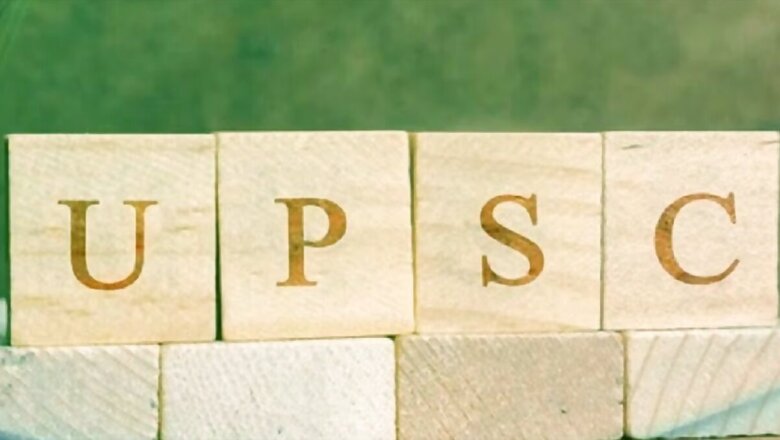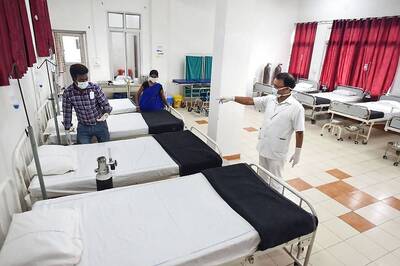
views
What does it take to crack the toughest entrance exams in the country? Indian Administrative Services (IAS) Officer Divya Mittal shared her secrets of getting through the Institutes of Technology (IIT), Indian Institutes of Management (IIM), before finally cracking the Union Public Service Commission (UPSC). Divya, who is currently serving as the District Magistrate (DM) of Uttar Pradesh’s Mirzapur achieved the 68th All India Rank (AIR) in the UPSC Civil Services Examination (CSE) 2012.
Divya Mittal completed her engineering degree from IIT Delhi and also went on to earn an MBA degree from IIM Bangalore. The IAS officer recounted her difficulty to focus during her preparation in a Twitter thread. She admitted that she was distracted while studying for all of the exams she passed.
“Check your phone usage and apps you spent time on every week. Many times you don’t even know how much time you are wasting on mobile apps,” Divya Mittal wrote.
I have cleared some of the toughest entrance tests in the country like that for IIT, IIM, IAS. It is not that I was not distracted during studies, but I overcame those distractions.Small tips on how to overcome distractions and get great focus
A thread????
— Divya Mittal (@divyamittal_IAS) July 21, 2023
She advised measuring mobile usage and finding time-consuming apps. Divya suggested adopting apps such as “Blackout” to prevent internet access for extended periods of time, allowing for focused study time free of digital distractions.
Reducing mobile usage???? Measure
Check your phone usage and apps u spent time on every week. Many times you dont even know how much time you are wasting on mobile apps. Android users can use free apps like
— Divya Mittal (@divyamittal_IAS) July 21, 2023
???? Technological solution: Use apps like Blackout to block internet for at least 6 hours every day. Force yourself to study in that time. It is not a free app, but it is very effective. Once it blacks out the phone, you can't go back for the period
— Divya Mittal (@divyamittal_IAS) July 21, 2023
Divya Mittal further highlighted her own method of placing the alarm away from her, compelling her to wake up and start studying right away, emphasising the need of early morning study sessions. “Early morning study is the best these days especially as it has lesser distractions,” she added.
???? Early morning studyKeep the alarm away from you, on loud volume. Most likely once you get up from the bed to switch off the alarm, you will decide to not go back to sleep and study. Early morning study is the best these days especially as it has lesser distractions
— Divya Mittal (@divyamittal_IAS) July 21, 2023
The IAS official recommended short, concentrated study sessions of 90 to 120 minutes, followed by a 15-minute break, to improve attention. This strategy was found to be successful in maintaining peak attention levels, Divya said.
To increase focus ????Keep short focused Sessions– Do 90-minute/2 hr intensely focused sessions– Take 15 min break after every session
You cannot maintain focus for longer than that at one go. Measure the session. Till the alarm goes off, dont do anything else but study
— Divya Mittal (@divyamittal_IAS) July 21, 2023
She also advocated Tratak, a unique meditation practice that includes concentrating one’s gaze on one object, such as a candle flame or a pencil, to improve focus. The IAS officer suggested using Binaural beats, 40 Hz sound vibrations available from platforms such as YouTube, to boost concentration and shorten the time it takes to attain a concentrated state.
????Practice Tratak meditationThis is known to increase focus Fix your eyes on an object. This can be the flame of a candle, a pencil, a spot on the wall.
— Divya Mittal (@divyamittal_IAS) July 21, 2023
Recognising the need for a good body-mind balance, She emphasised the value of frequent exercise, preferably outside.
???? Exercise & Outdoor– Exercise preferably outside, at least a 20 mins walk– Get close to nature – go to a park and walk/sit– Get some sunlight even if for 5-10 mins
— Divya Mittal (@divyamittal_IAS) July 21, 2023
Divya Mittal highlighted the need of nutrition during hard study times. She stressed on how healthy nutrition not only improves focus but also reduces the need for continual nibbling, boosting better concentration.
???? NutritionWhile studying we forget to take care of nutrition. A balanced diet helps in increasing focus. Also reduces the need to munch on snacks.
— Divya Mittal (@divyamittal_IAS) July 21, 2023
Divya Mittal concluded her post by stating that, while her suggestions may appear basic, persistent application can make a significant difference in reaching academic goals and beyond.
That's a wrap!While these are simple tips, sometimes small things make a huge difference when done repeatedly.
Best of luck for whatever you are trying to focus for!
Follow me @divyamittal_IAS for more of these https://t.co/SgcatNl6AG
— Divya Mittal (@divyamittal_IAS) July 21, 2023
This year, the UPSC CSE Mains exam is scheduled to be held on September 15.

















Comments
0 comment